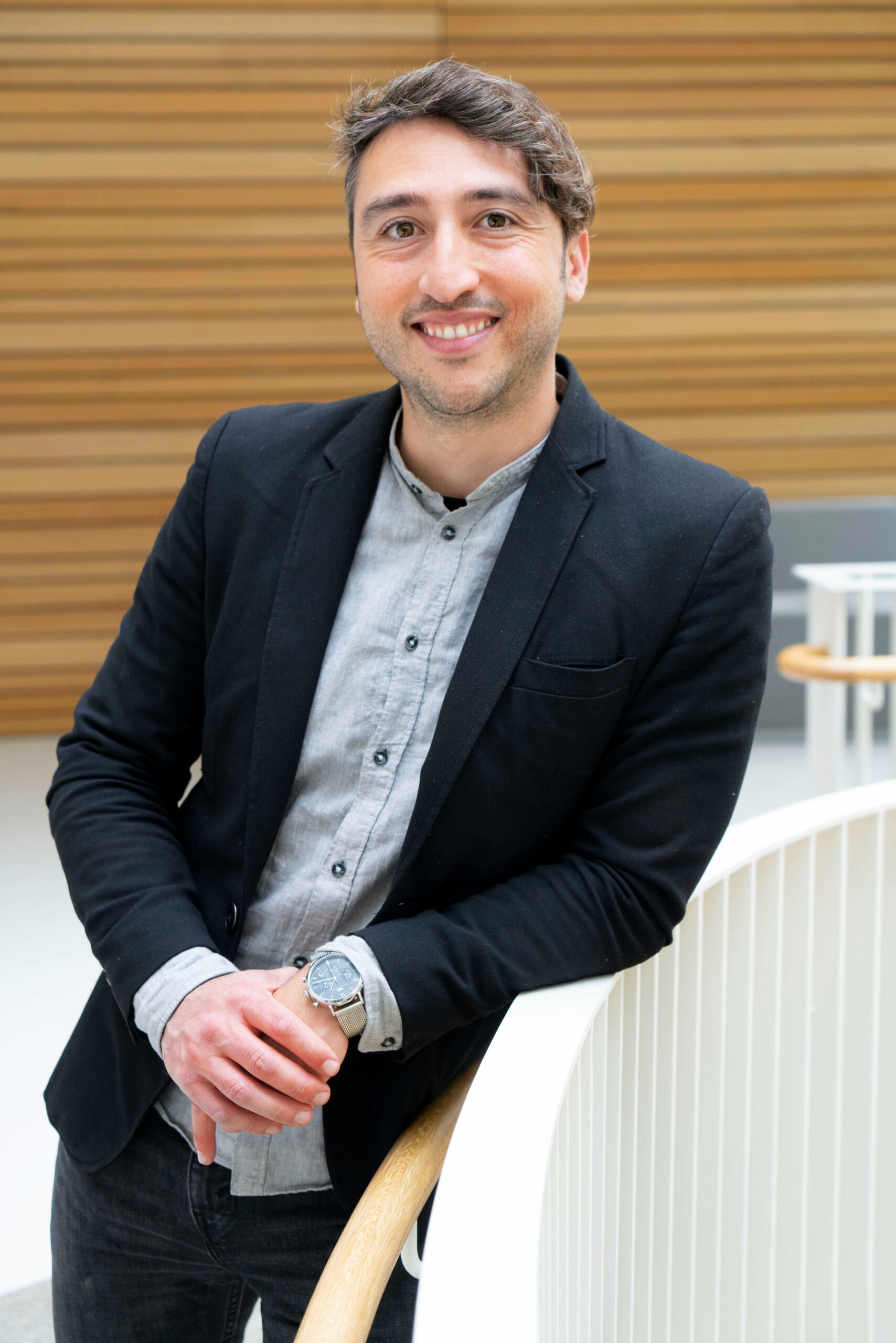Prof. Dr. Marcello Ienca
Deputy Director of the Institute
^Marcello Ienca is a W2 Professor of Ethics of AI and Neuroscience at the TUM School of Medicine and Health and the TUM School of Social Sciences and Technology (joint appointment). He is also the Deputy Director of the TUM Institute for History and Ethics of Medicine, where he leads the Ethics of AI and Neuroscience group.
Prof. Ienca’s research addresses the ethical, legal, social, and policy implications of artificial intelligence (AI), neurotechnology, and other emerging technologies. His team employs both theoretical and empirical methods to explore the conceptual foundations and practical requirements for ethical AI in medicine and neuroscience, as well as responsible innovation and human-centered design at the brain-machine interface.
Ienca received his doctorate in 2018 summa cum laude at the University of Basel and was awarded the prize for the best dissertation in the Faculty of Medicine (sponsored by the Goldschmidt-Jacobson Foundation). He previously studied philosophy, neuroscience, computer science and biomedical ethics at La Sapienza University in Rome, Humboldt University in Berlin, New York University, KU Leuven and Radboud University.
From 2017 to 2021, he worked as a postdoctoral researcher and then a senior researcher at ETH Zurich in the Department of Health Sciences and Technology. In 2021, he was a Visiting Scholar at the Uehiro Centre for Practical Ethics at the University of Oxford. That same year, he founded the Intelligent Systems Ethics Group in the College of Humanities at EPFL in Lausanne.
Prof. Ienca is actively involved in the science and technology policy of international organizations and professional associations. In particular, he is the Head of Neuroethics at the International Brain Initiative (IBI)an appointed member of the UNESCO ad hoc expert group, tasked with developing a recommendation on the ethics of neurotechnology (appointed by UNESCO Director-General Audrey Azoulay), an appointed member of the UNICEF Expert Advisory Group on Neurotechnology and Children, and advisor and rapporteur to the Council of Europe Committee on Data Protection (where he was tasked with developing a report on data protection and the human brain).
Previously, Ienca was a member of the Steering Group of the Organisation for Economic Co-operation and Development (OECD) that drafted the 2019 Recommendation on Responsible Innovation in Neurotechnology, marking the first international standard in neurotechnology policy. He has also been appointed as an expert to the Council of Europe's Ad Hoc Committee on Artificial Intelligence, the Bioethics Committee, and the United Nations Human Rights Council (UNHRC). Prof. Ienca has written reports for the OECD, the Council of Europe, and the European Parliament Committee on the Future of Science and Technology. He is a board member of the International Neuroethics Society (INS) and the Italian Society for Neuroethics (SINe).
Ienca is a member of the editorial board of several scientific journals, including Neuroethics, Bioethica Forum, BMC Medical Ethics and Frontiers in Neuroergonomicss.
Prof. Ienca has received several awards for social responsibility in science and technology, including the Vontobel Award for Ageing Research (Switzerland), the Pato de Carvalho Award (Portugal), the Sonia Lupien Award (Canada), the Paul Schotsmans Award from the European Association of Centres of Medical Ethics (EACME), and the Plaque of Honor for Data Protection from the Italian Data Protection Authority.
He is the author of a monograph, several editorships, over 80 scientific articles in journals and numerous book chapters and is a regular contributor to Scientific American. His research has been published in scientific journals such as Nature Biotechnology, Nature Machine Intelligence, Nature Medicine, Neuron, The Lancet Digital Health and Brain stimulation published and in media such as Nature, The New Yorker, The Guardian, The Times, The world, The Independent, Financial Times, The Atlantic and others. He has appeared on television worldwide, including BBC (UK), TMZ (USA), RAI (Italy), ZDF (Germany) and SRF (Switzerland). He is a TEDx speaker (talk "Human-AI Symbiosis and the Quest for Neurorights" available here).
Additionally, Prof. Ienca is deeply committed to open science, outreach, and civic engagement. He advocates for a holistic approach to research that extends beyond academia to include open science communication, outreach, and public engagement. Among other commitments, he is an open science and open data enthusiast, a human rights activist, and a dedicated anti-racist. He believes that there can be no ethical technological innovation without global justice and the protection of human rights.
Prof. Ienca has a second appointment at the EPFL (Switzerland), where he Research Group for Ethics of Intelligent Systems and manages the "HybridMinds" project funded by the Swiss National Science Foundation (SNSF).
- Neuroethics
- AI ethics
- Data Ethics
- Neural Rights
- Human/machine interactions
- Technology Assessment
- Health equality
- Open Science
Click here for all publications
Array- GTE Lecture (SoSe)
- Ethics and Palliative Care Seminar (Certificate of Achievement GTE) (SoSe and WiSe)
- Vocational Field Orientation (BFE) (WiSe)
- Elective
